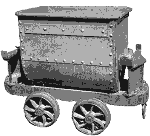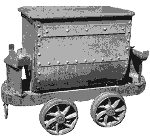
 Home
Page Back Ground History
Mining Regions
The Postcards
The Tokens
Links
Bibliography
Acknowledgements
Site
Forum Cards & Tokens Classified Ads.
Guest Book
Updates & News Contact
The Site
Home
Page Back Ground History
Mining Regions
The Postcards
The Tokens
Links
Bibliography
Acknowledgements
Site
Forum Cards & Tokens Classified Ads.
Guest Book
Updates & News Contact
The Site
 Home
Page Back Ground History
Mining Regions
The Postcards
The Tokens
Links
Bibliography
Acknowledgements
Site
Forum Cards & Tokens Classified Ads.
Guest Book
Updates & News Contact
The Site
Home
Page Back Ground History
Mining Regions
The Postcards
The Tokens
Links
Bibliography
Acknowledgements
Site
Forum Cards & Tokens Classified Ads.
Guest Book
Updates & News Contact
The Site

 The
Postcards
The
Postcards
To find out more back ground information or to access a summary guide to the postcard matter contained within this web site select from the listed topics below;
Like many early picture postcards those representing images of Southern Africa's mining industry can often offer fascinating and in some cases unique glimpses of the region's industrial past. As such they can be viewed as important sources of historical information. Like any other documents or artifacts of the past, there are some cards that are more valuable than others in terms of the information they present. Postcards can offer various types of historical information. It is not necessarily just the images they present but also their written messages and postmarks. Given such an array of information we find that it isn't just the historian who can benefit from the information, graphic or otherwise found on them. Postcards can also be a valuable resource for many genealogists allowing them to learn more about the places and times of their forebears and in some instances even present pictures of their ancestors.
Knowing the dates associated with a postcard can make
their historical content more useful. Note the use of the plural "dates" as
there are several dates associated with any given picture postcard. Most important of these
dates is that when the card's image, be it a drawing or a photograph, was created. There is also a date
associated with
the card's manufacture, that
is the date when it was printed. Then there is the date it was purchased,
although there is rarely direct evidence for
this. The date the card was used (if in deed it was used), can generally be assumed to be soon after the date of purchase,
though there are exceptions.
The first and most obvious way of dating a postcard is to use the postmark date. This is applicable as long as the card has been postally used and its postmark legible. In most cases this will give a good indication of when the card was made, but not necessarily of when the original photograph or image produced. Although in a few cases the cards may have been used and postmarked years after their manufacture. Generally speaking on many of the more popular views many postcard manufacturers often re-used the same photographs over and over again. On some cards, in the UK at least, it has even been known for the publishers to occasionally modifying an earlier postcard negative by adding people and features in preparation for re-issue.
In the absence of any other evidence the following may be be of use in ascertaining a postcard's age or that of the content of its image ;
With regards to item No.3 above, a further point to be considered is whether the card has a divided or un-divided back. A divided back being one where a central vertical line separates the card's reverse into two halves. The right hand side being that designated for the recipients address while the left hand side was reserved for the sender's message. The use of cards with divided backs did not appear in the UK until after 1902. It may be assumed that a similar date, or at least one shortly afterwards, also applies to similar cards found in South Africa.
Index Of Postcard Issuing Locations & Postcard Subjects Matter
| Alphabetical Listing of Mines & Diggings | Location (Note 2) | Mineral Mined or Quarried | Click links below to view the appropriate sets of postcards & subject matter |
|---|---|---|---|
| Barkley West Diggings | Barkley West, Northern Cape Province | Diamonds (Alluvial) | |
| De Beers Mine | Kimberley, Northern Cape Province | Diamonds (Kimberlitic) | |
| Du Toits Pan Mine | Du Toits Pan Mine | Diamonds (Kimberlitic) | |
| Belfast Colliery | Belfast, Transvaal | Coal | |
| Bloemhof Diggings | Bloemhof, South-west Transvaal | Diamonds (Alluvial) | |
| Bultfontein Mine | Kimberley, Northern Cape Province | Diamonds (Kimberlitic) | |
| Christiana Diggings | Christiana, South-west Transvaal | Diamonds (Alluvial) | |
| Clydesdale Collieries | Springs, Witwatersrand East/Transvaal | Coal | |
| Cornelia Colliery | Vereeninging, Transvaal | Coal | |
| Cyphergat Colliery | Molteno, Eastern Cape Province | Coal | |
| Durban Navigation Collieries | Dannhauser, Natal | Coal | |
| Dundee Colliery | Dundee, Natal | Coal | |
| Elizabeth Bay Diggings | Sperrgebiet, Lüderitz Province, SWA | Diamonds (Alluvial) | |
| Great Eastern Colliery | Springs, Witwatersrand East/Transvaal | Coal | |
| Impala Platinum | Rustenburg, North West Transvaal | Platinum Group Metals | |
| Jagersfontein Mine | Jagersfontein, Orange Free State | Diamonds (Kimberlitic) | |
| Khan Mine | Arandis, Swakopmund District, SWA | Copper Ore | |
| Kimberly Mine | Kimberley, Northern Cape Province | Diamonds (Kimberlitic) | |
| Kimberly District (General) | Kimberley, Northern Cape Province | Diamonds (Kimberlitic) | |
| Koffyfontein Mine | Koffyfontein, Orange Free State | Diamonds (Kimberlitic) | |
| Kolmanskop Diggings | Sperrgebiet, Lüderitz Province, SWA | Diamonds (Alluvial) | |
| La Fortuna Mine | Barberton, Eastern Transvaal | Hard Rock Gold Ore | |
| Lichtenburg Diggings | Lichtenburg, Western Transvaal | Diamonds (Alluvial) | |
| Lüderitz Bay Diggings | Sperrgebiet, Lüderitz District, SWA | Diamonds (Alluvial) | |
| Madibi Mine | Mafeking, Northern Cape Province | Hard Rock Gold Ore | |
| Messina Mine | Messina, Northern Transvaal | Copper Ore | |
| Middleburg Colliery | Middleburg, Eastern Transvaal | Coal | |
| Moodies Diggings | Barberton, Eastern Transvaal | Alluvial Gold | |
| Mosesberg Diggings | Barkley West, Northern Cape Province | Diamonds (Alluvial) | |
| Otavi Mine | Otavi, Grootfontein District, SWA | Copper Ore | |
| Pilgrims Rest Diggings | Pilgrims Rest, Eastern Transvaal | Alluvial & Hard Rock Gold | |
| Pomona Diggings | Sperrgebiet, Lüderitz District, SWA | Diamonds (Alluvial) | |
| Port Nolloth Ore Terminal | Port Nolloth, Northern Cape Province | Copper Ore | |
| Premier Colliery | Delmas, Transvaal | Coal | |
| Premier Mine (Note 1) | Cullinan, Transvaal | Diamonds (Kimberlitic) | |
| The Sperrgebiet (General) | Sperrgebiet, Lüderitz District, SWA | Diamonds (Alluvial) | |
| Tsumeb Mine | Tsumeb, Tsumeb District, SWA | Copper, Lead & Zinc Ores | |
| Sheba Mine | Barberton, Eastern Transvaal | Hard Rock Gold Ore | |
| Vaal River Diggings | Barkley West, Northern Cape Province | Diamonds (Alluvial) | |
| Wesselton Mine (Note 1) | Kimberley, Northern Cape Province | Diamonds (Kimberlitic) | |
| Witbank Collieries | Witbank, Eastern Transvaal | Coal | |
| Witwatersrand
(General)
(Note 3) |
Johannesburg Area, Transvaal | Hard Rock Gold Ore |
|
Notes:
1) Wesselton Mine was also known in its earlier years as the Premier Diamond Mines.
2) Unless stated otherwise (i.e. SWA) all locations are in South Africa.
3) Individual mines on the Witwatersrand are all listed separately.